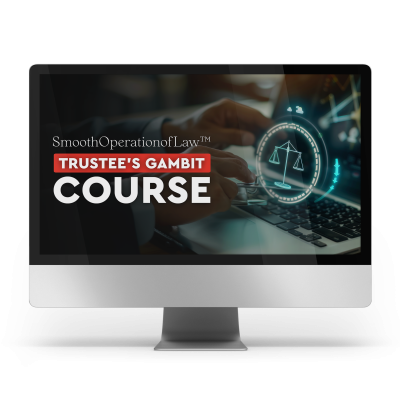| Outcomes |
- Mastery of Trust Administration: Participants will gain a comprehensive understanding of how to manage and administer irrevocable trusts, including overseeing assets, legal compliance, and beneficiary relations.
- Proficiency in Fiduciary Responsibilities: Operators will be able to execute fiduciary duties with integrity and accountability, ensuring the trust operates in the best interests of beneficiaries while adhering to legal requirements.
- Advanced Asset Protection Strategies: Participants will learn how to safeguard trust assets using legal and financial strategies, including diversifying investments, reducing liabilities, and protecting wealth from potential risks.
- Knowledge of Trust Law and Sovereign Wealth Regulations: Graduates will possess a deep understanding of trust law, including compliance with sovereign wealth fund regulations, enabling them to navigate complex legal frameworks confidently.
- Ability to Leverage Blockchain and Decentralized Finance (DeFi): Operators will be equipped to incorporate blockchain technology and decentralized finance into trust administration, utilizing smart contracts and digital assets for efficient management and reporting.
- Enhanced Decision-Making Skills: Participants will develop critical thinking and problem-solving skills essential for making sound financial and legal decisions in the role of a trustee.
- Improved Communication and Reporting Abilities: Operators will be adept at preparing and delivering clear reports to beneficiaries, co-trustees, and other stakeholders, ensuring transparency and trust in their management practices.
- Understanding of Risk Management: Graduates will be capable of identifying, mitigating, and managing risks within the trust, ensuring long-term security and stability for the assets and beneficiaries.
- Certification as a Qualified Trustee: Upon completion of the course, participants will receive certification acknowledging their expertise in trust administration, preparing them for real-world trustee roles and responsibilities.
- Capacity for Growth in Wealth Management: Operators will leave the course with the knowledge and confidence to manage, grow, and protect family or organizational wealth using trust structures, making them invaluable in the world of wealth management.
|
|
|
| Requirements |
- Basic Understanding of Trust Law: Participants should have a foundational knowledge of trust law, particularly the roles and responsibilities involved in administering irrevocable trusts.
- Commitment to Fiduciary Duties: Operators must be committed to fulfilling their fiduciary duties with integrity, acting in the best interest of trust beneficiaries and managing trust assets responsibly.
- Attention to Legal Compliance: You must be prepared to understand and follow the laws governing trusts, including sovereign wealth fund regulations and legal reporting obligations.
- Strong Organizational Skills: Trustees are responsible for maintaining accurate records, overseeing asset management, and ensuring the smooth operation of trust functions. Good organization is key to meeting these requirements.
- Financial Literacy: A working knowledge of financial management, including the ability to understand investments, asset protection strategies, and financial reports, is essential for effective trust administration.
- Willingness to Learn Blockchain and DeFi Technologies: Operators should be open to learning about new technologies, such as blockchain, smart contracts, and decentralized finance, as these are integral to modern trust management within the course.
- Confidentiality and Ethical Conduct: As a trustee, you will have access to sensitive financial and legal information. It is essential to maintain the highest standards of confidentiality and ethical behavior.
- Time Commitment: Operators must be able to dedicate the necessary time to attend live sessions, participate in practical exercises, and engage with course materials. Full participation is crucial for mastering trustee duties.
- Critical Thinking and Decision-Making Skills: Trustees must have strong problem-solving skills and the ability to make informed decisions in the best interest of the trust and its beneficiaries.
- Strong Communication Skills: Clear and transparent communication with beneficiaries, co-trustees, and legal professionals is critical to successful trust administration. Participants should be prepared to report regularly and manage communications effectively.
|
|
|



 0
0